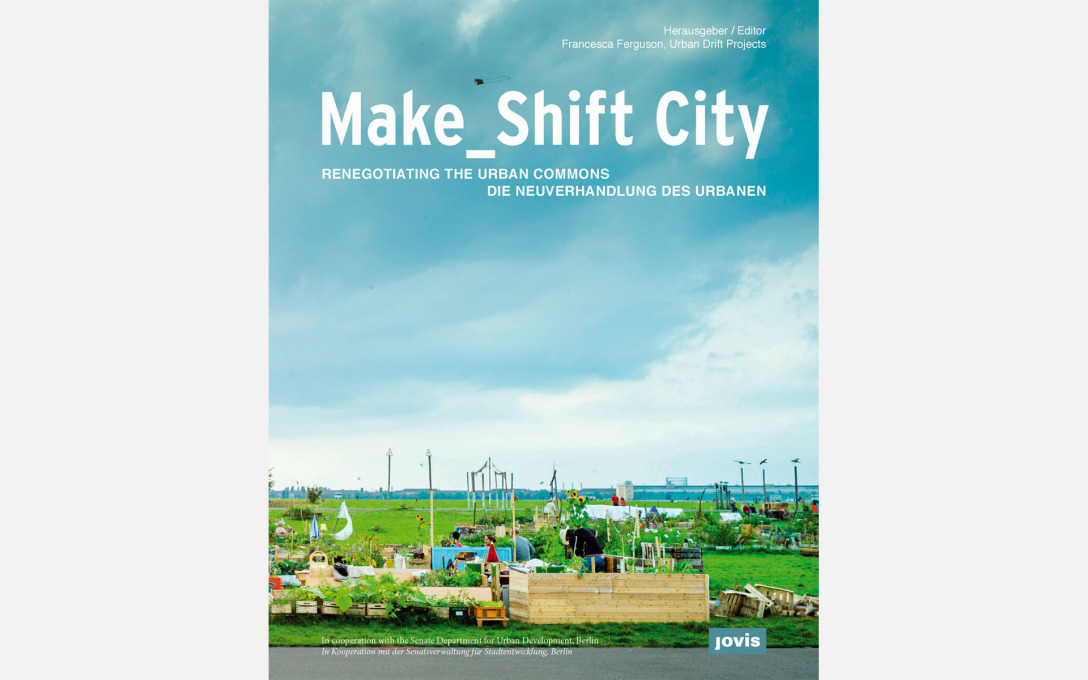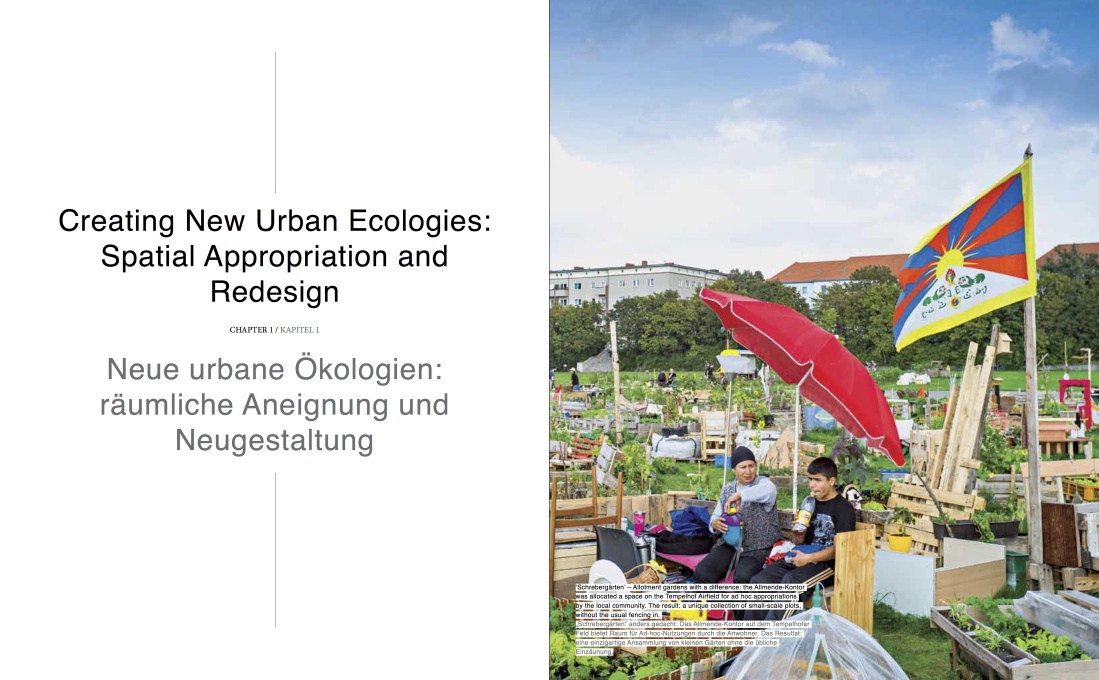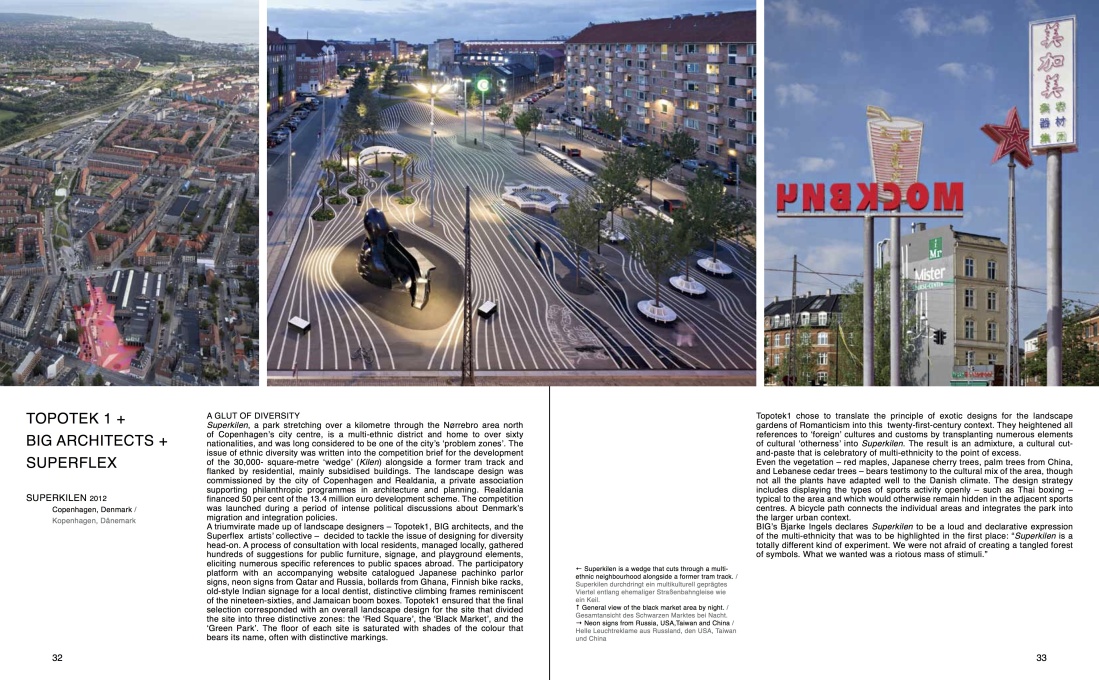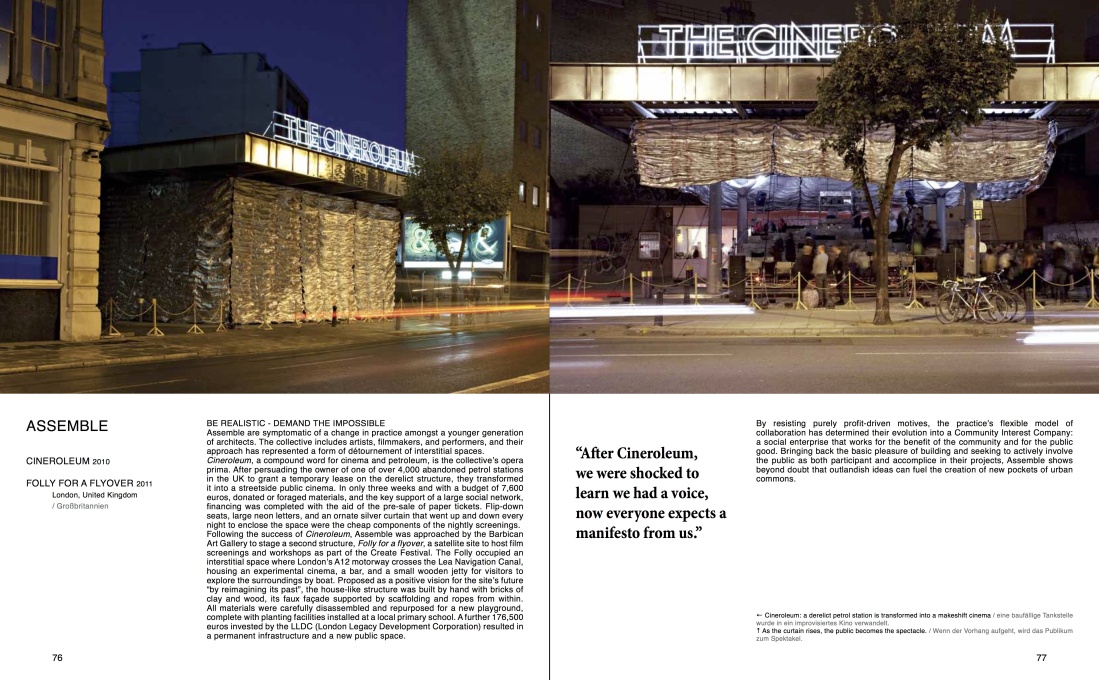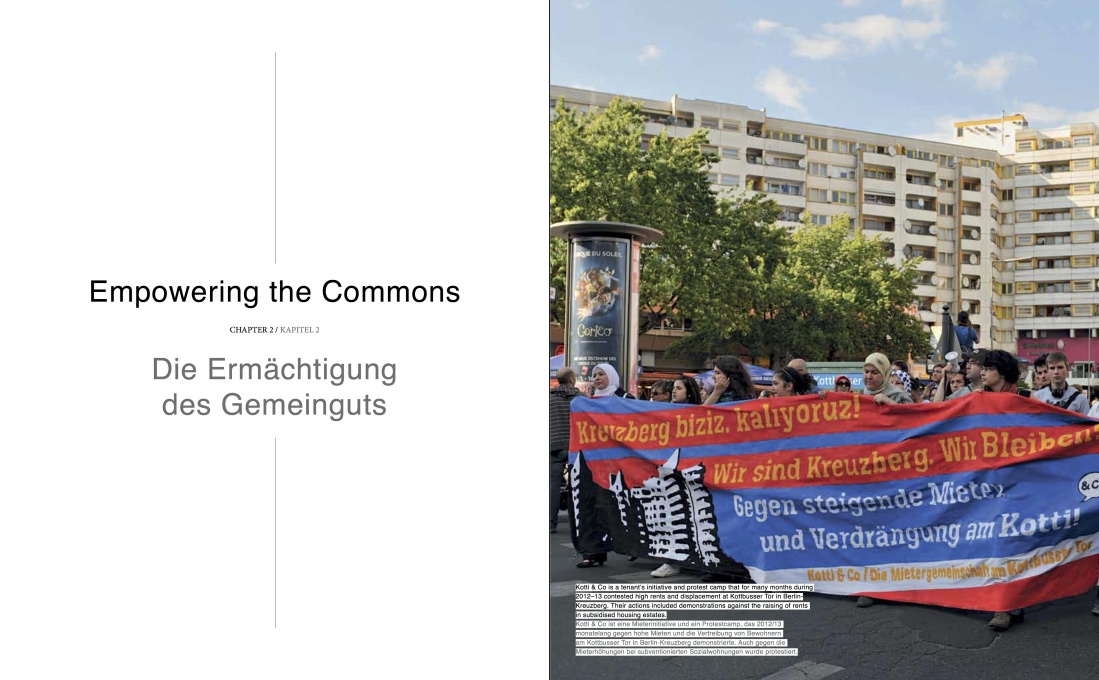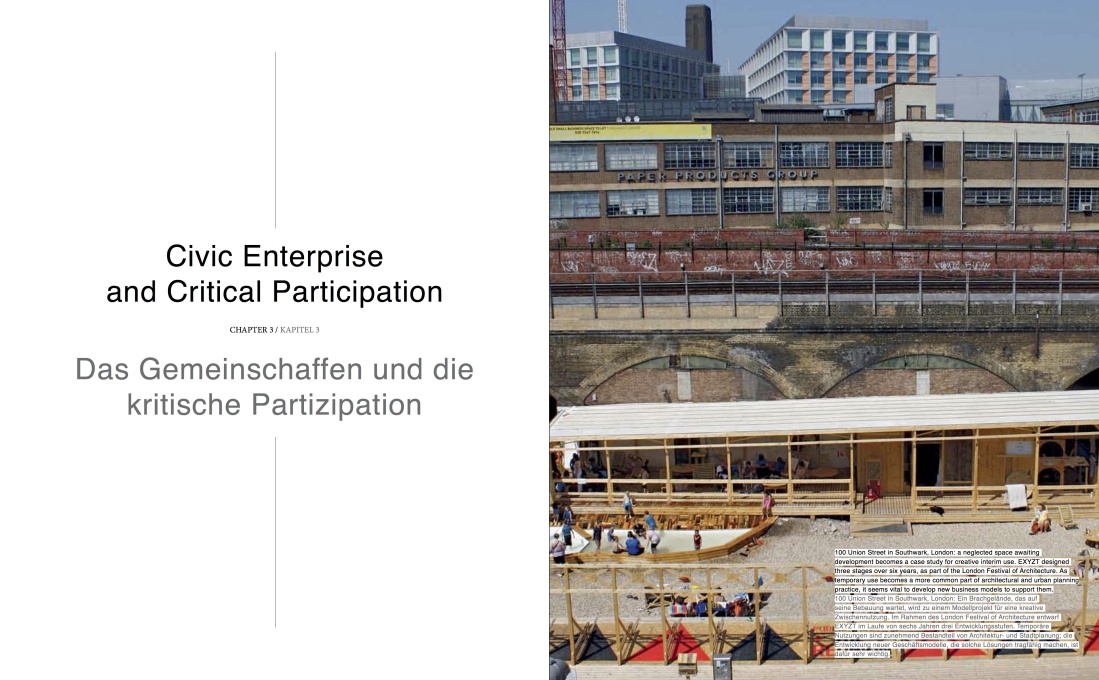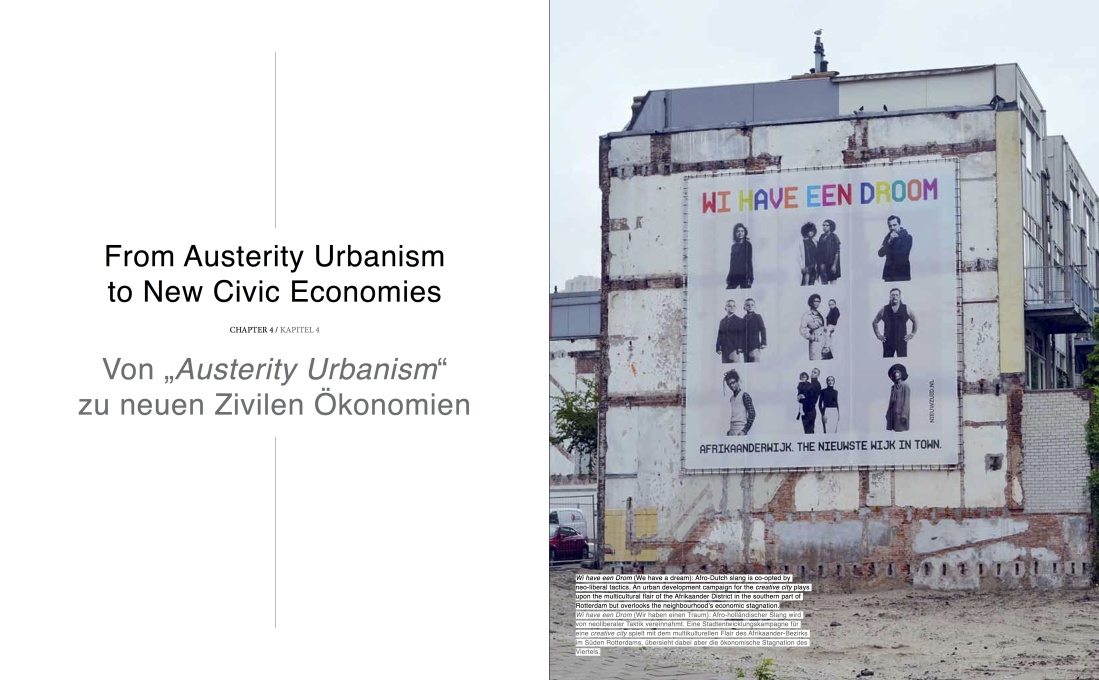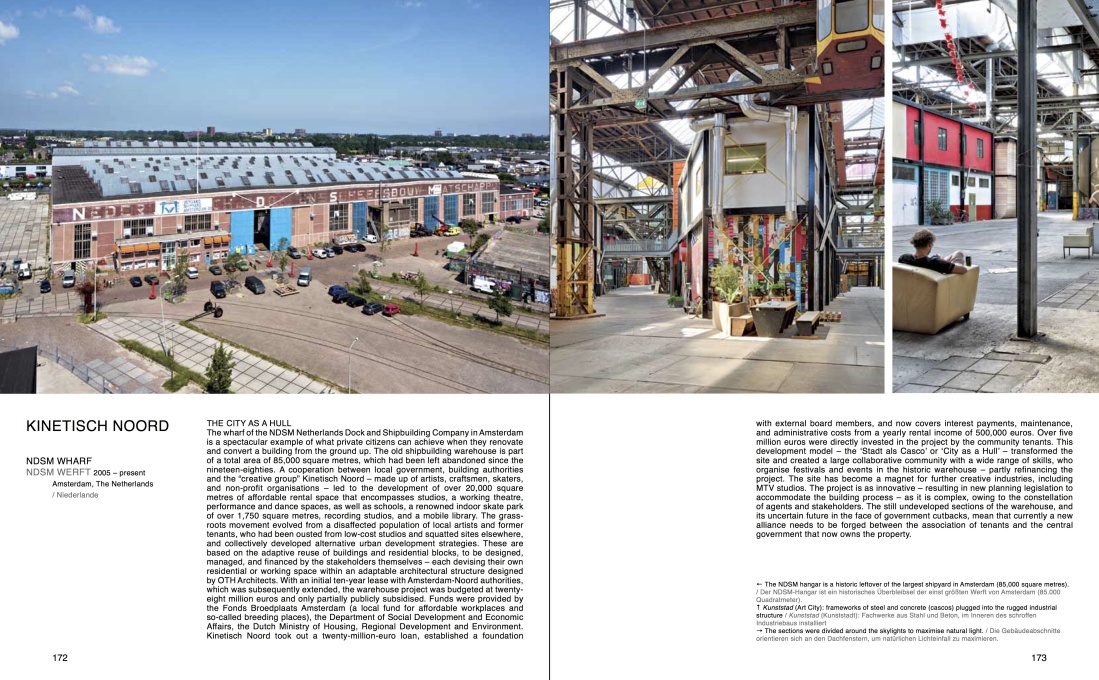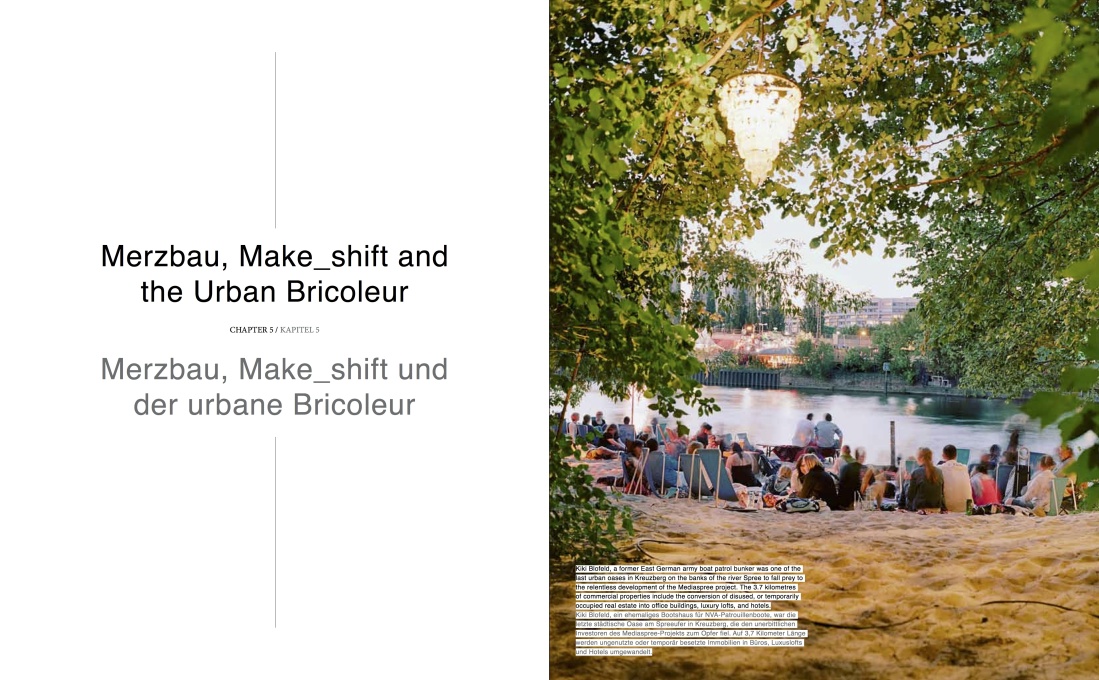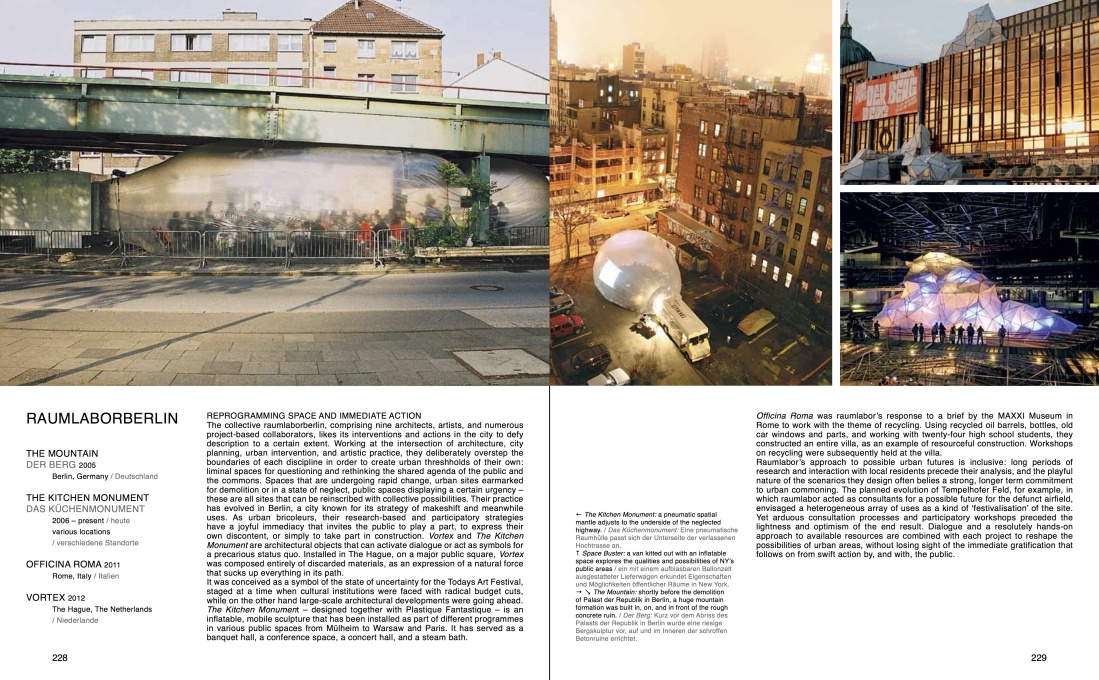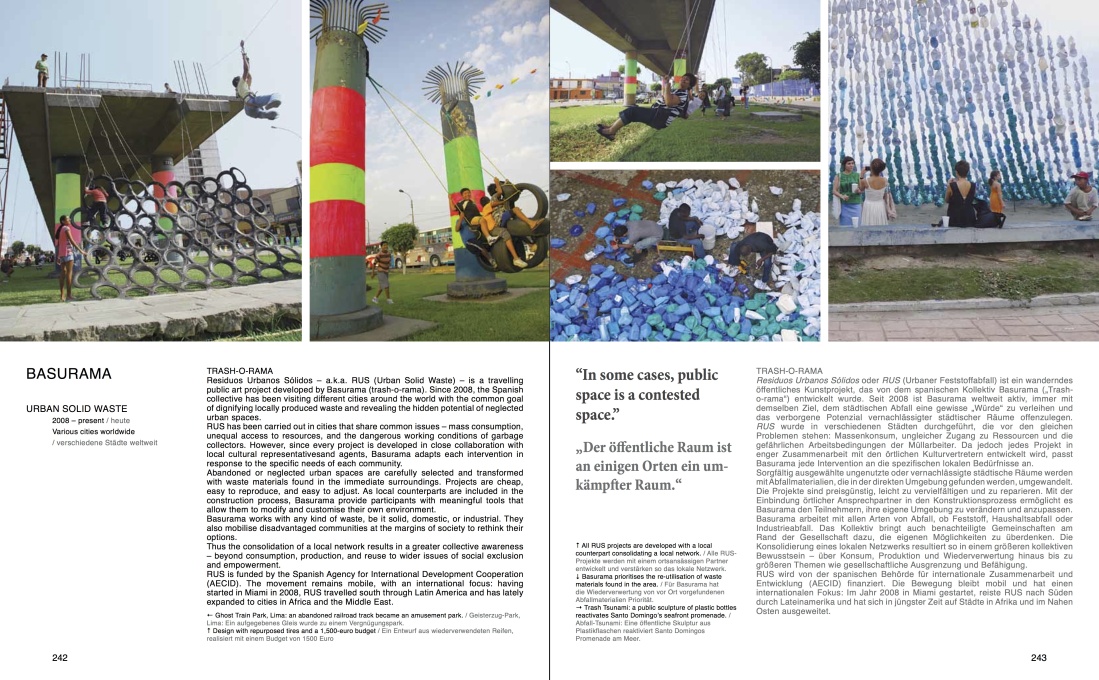A new book Make_Shift City is out, examining a more informal urbanism that has been developing worldwide, particularly in Europe, since the financial crisis. This subject is also the focus of uncube’s next issue Urban Commons, guest edited by Francesca Ferguson, who is the book’s editor. So to whet your appetite for this fascinating subject, we asked Jason Hilgefort to review the book. He finds a field that is still evolving fast.
After the fall of the Wall, Berlin initially suffered yet ultimately benefitted from, its unusual urban situation. Thanks in part to the vast amounts of available space, both interior and exterior, it had the capacity to function as a testing ground for many new models of urban programming. However, recent shifts in political and economic realities have led to rising rents and the subsequent disappearance of many of these collective and alternative models of organisation and action. In light of this, a series of workshops was organised by the KW Institute for Contemporary Art, and developed by Francesca Ferguson/Urban Drift in 2012. The final workshop was entitled "Make_Shift: The Expanded Field of Critical Spatial Practice" and this book Make_Shift City evolved from it.
The conferences and now the book represent a varied collection of contemporary actors and actions. In light of this, the book is divided into five sections: New Urban Ecologies: Spatial Appropriation and Redesign; Empowering the Commons; Civic Enterprise and Critical Participation; From Austerity Urbanism to New Civic Economies; Merzbau; and Make_Shift and the Urban Bricoleur, each explored through interviews, articles, and projects. The projects themselves include buildings, installations, and community engagement processes with works by emerging and established offices such as BIG, NL Architects, MUF, Raumlaborberlin, Topotek 1, ZUS; as well as including the actions of people like Jeanne van Heeswijk, Dan Hill, and the Center for Urban Pedagogy.
But the book goes beyond being just a collection of enticing photos of pop-up urbanism projects, attempting to pull back the curtain back and understand the numerous forces at play in such modes of practice. Further, like many contemporary urban actions, whilst it emerged from local roots in the specific condition of Berlin, it has a global perspective, with a series of international insights with texts by Inderpaul Johar, Stavros Stavrides and Fran Tonkiss. So it keeps one foot on the ground in Northwestern Europe but contextualises this through the global lens of events like Occupy, the Arab Spring, Gezi Park, Turkey, Brazil, (and even now Ukraine).
This publication and these current times reveal how the practice of urbanism has been transformed, from a profession-based discipline, focussed on long term visions, planning drawings, and economic development strategies, to one that is much more interested in making: not merely the designing or planning for changes that should be made, but actually producing the changes in real time. Also, while in the past public involvement usually meant developing a dialogue through a series of consultative meetings, many projects now seek to engage the public in order to co-create the spaces immediately.
This leads to perhaps the main underlying thread of the publication – a greater awareness of the commons or “commoning” shared by the different parties and interest groups. After the fall of the Wall, the majority of the world sprinted toward capitalism. But in the wake of this race, which led towards the commodification of our cities, some actors and places got left behind, making exploration of alternative models. Perhaps ironically, the new rise of the idea and mechanisms of a sharing society has come from the digital realm, with Facebook, airbnb, ridesharing, etc. Could this once feared rival of urban society (“computers will allow everyone to live in the countryside, etc. etc.”] actually lead to the saving and repurposing of our built public spaces?
The many projects pictured in the book serve to illustrate the benefits of a closer collaboration with users. Often public space design can suffer from a “global generic-ness”. The processes inherent in the designs here seems to result in spaces that more accurately reflect the people and specific culture of a place. These spaces between buildings provide a local identity, which often makes the subsequent buildings developed there seem stiff and stale in contrast. Perhaps these spaces can point a way forward from the globalised nature of architecture too?
In this economic crisis many have lamented that a lost generation of architects is emerging due to the lack of job opportunities for young and newly-qualified practitioners. Rem Koolhaas recently lamented that “contemporary architecture… is not in particularly good health”. Flipping through Make_Shift City one begins to wonder if Rem is perhaps too far up in the towers he is designing to see what is happening on the ground. The younger generation of architects, lacking clients that wish to build, have not turned to paper architecture like previous generations. They have instead often taken on the role of activists, engaging with urban issues and their communities. One finishes this book wondering how this generation will evolve. How might these designers handle a museum or a corporate headquarters commission one day?
If anything, Make_Shift City is guilty of being timely. Perhaps it is too focussed on post crisis realities or on a certain niche of “urban making” present within current practice. However, in the wave of publications about pop urbanism, community engagement, et al, the book opens its arms wide and embraces both the diversity of elements as well as delving deep into the framework and implications of what can certainly be deemed a movement. How this movement might evolve is tough to say, but the potential of how such modes of operating might evolve shows great promise for the future of the field.
– Jason Hilgefort is the founder of Land+Civilization Compositions.
www.landandcc.com
––
Subscribe to win a copy of Make_Shift City!
We have two copies of Make_Shift City to give away! Subscribe to uncube to enter in our draw (it's free!), and send an email to bea@uncubemagazine.com with “Make_Shift City” in the subject line before Monday 7th April. If you are already a subscriber, then you're halfway there. Just send us the email to enter to win! Subscribe to the uncube newsletter.
Make_Shift City Renegotiating the Urban Commons.
Editor: Francesca Ferguson, Urban Drift Projects (ed.) In cooperation with the Berlin Senate for Urban Development
English/German
256 pages
Jovis, January 2014
ISBN 978-3-86859-223-8
www.jovis.de




